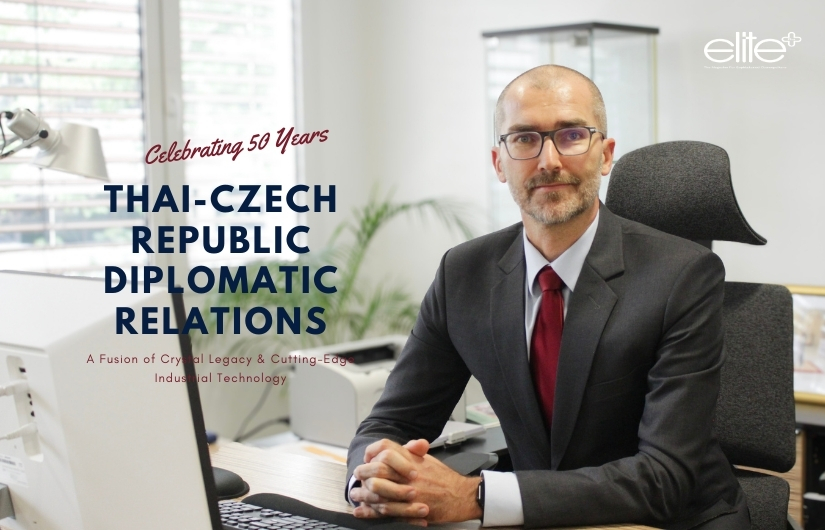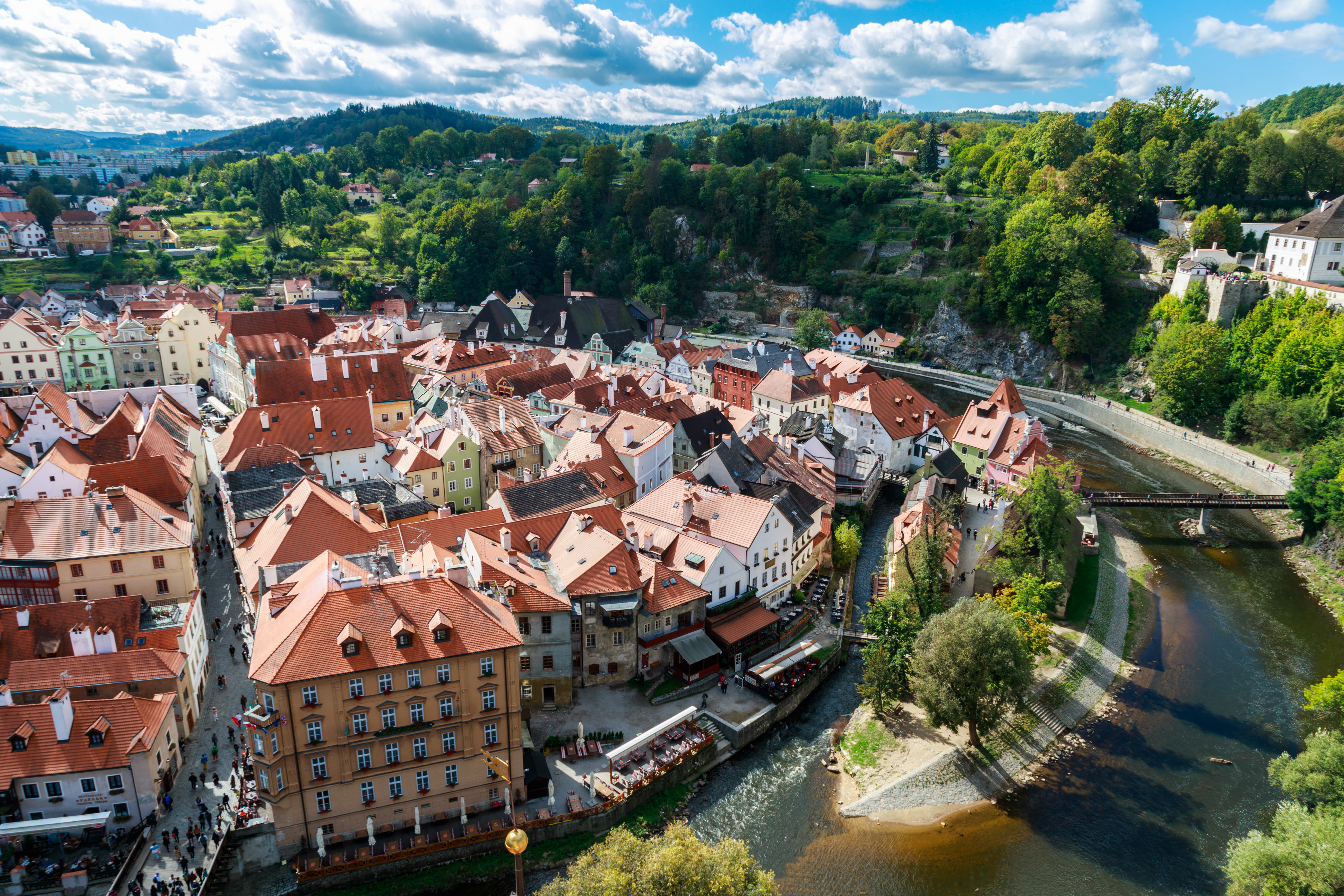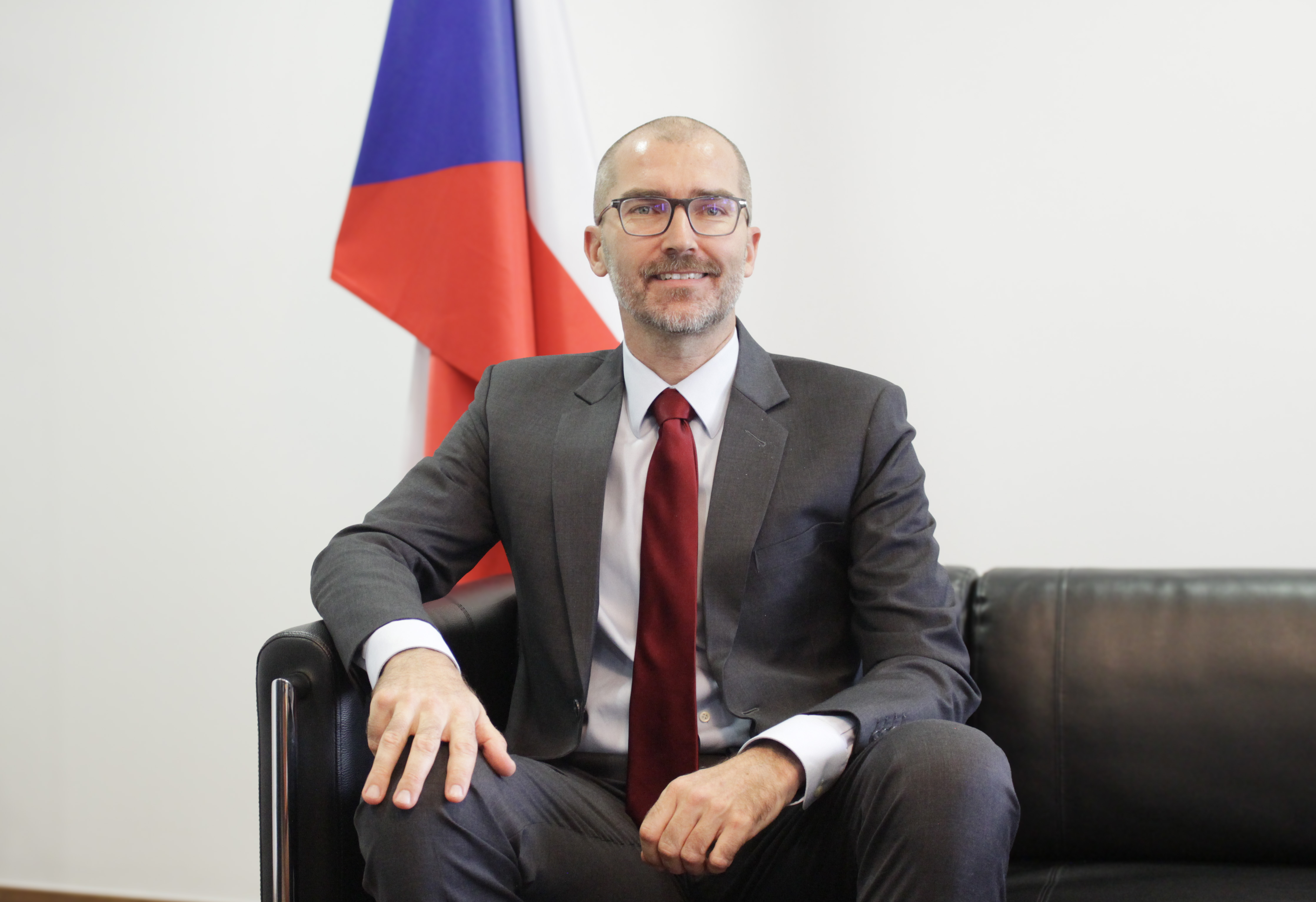Celebrating 50 Years Of Thai-Czech Republic Diplomatic Relations

Celebrating 50 Years of Thai-Czech Republic Diplomatic Relations
“A Fusion of Crystal Legacy & Cutting-Edge Industrial Technology”
As Thailand and the Czech Republic mark the golden jubilee of diplomatic ties, HE Mr Pavel Pitel has been kind enough to take us on an illuminating journey through our two countries’ intertwined history and remarkable strides in collaboration. During this interview, he uncovers the profound impact on both countries through enhancing bilateral relations and fostering mutual prosperity.
To begin, can you tell us what made you become an ambassador?
After I graduated from university, I was thinking about my professional career because I studied international trade at the University of Economics in Prague. I obviously was looking into some companies connected with international trade and business, and my first job was with an investment bank. But very soon after starting there, I realized I was not comfortable in this environment. It was super competitive, very profit oriented, and I was not happy. So, I began looking for other opportunities and at that time, a vacancy at the Ministry of Foreign Affairs came up. I applied and I started working with the ministry, beginning at a junior position. Slowly and after three postings abroad, I progressed to achieve this position.
How would you describe your first year and a half in Thailand as ambassador?
Well, I realize that as an ambassador, I see Thailand slightly different from 20 years ago when I was a young backpacker touring around the country. Thailand has many layers, many things to be happy about, many things to think about it. Since my arrival in Bangkok, I have embraced the city, country and its people, who have made a very soft landing for me and my family. I feel so at home.
Like anywhere else in the world, there are challenges. We must deal with a different culture, a different mindset than our European one. So, we have to bridge these cultural differences to understand each other correctly. This is sometimes challenging because at times, I might use the wrong words or approach to convey my message to my Thai counterparts. So, every day, I am learning more and more to rectify this.
Do you have any remarkable stories since coming here?
Remarkable Stories? We have many from our consular department. With our many Czech tourists coming to Thailand, we unfortunately have to deal with ‘dangerous’ incidents connected to those people. People have died here during their vacations while riding motorbikes, snorkelling or diving. These are the sad stories. Then there are happy stories of people finding their loved ones in Thailand. You know, they have met their partners here and are living a happy life afterwards. We also have very happy stories concerning our companies succeeding here, bringing Czech products to Thai customers.

Cr photo: https://www.freepik.com
Can you elaborate on this? What are some of these products?
To begin, the Czech Republic is basically part of the Central European region. Our neighbours are Germany, Austria, Poland, Slovakia. We have been very much influenced by these countries in terms of industry and culture. From the very beginning, we were one of the most industrialized countries in Europe. Between the First and Second World Wars, the Czech Republic was somewhere on a level with Switzerland, and we produced machinery, automobiles, aircrafts and much more at top-level quality. Unfortunately, after World War II, our country fell under the influence of the Soviet Union. The communist regime then ruined much of the industry, and it was only after the democratic revolution several decades ago that our companies again started to thrive and return to the level of quality we were known for before the war.
I think when people think of Czech products, first that come to mind are crystal and pistols such as CZ, which is well known all over the world.
This is a very good example of our activities. While I do not shoot, CZ produces a full range of weaponry respected the world over. Recently, they acquired the American “Colt” company and are now known as the COLT-CZ group. This is an example of Czech success, establishing a global company.
As the Czech Republic and Thailand celebrate the 50th anniversary of diplomatic ties, what initiatives or events do you have planned?
Well, 50 years is not much in terms of a history, but it is a milestone. Now, I would like to briefly tell you why it is only 50 years. Again, unfortunately, the communist regime and Cold War between the US and the Soviet Union can be blamed for this. Thailand, during the Cold War, was more aligned with the United States. So, we were unfortunately on the opposite sides of the iron curtain and were unable to establish connections during this time. So, in fact, 50 years, beginning in 1974, is an important milestone. Our embassy and I, personally, would like to concentrate on organising many high-level visits Thailand and the Czech Republic. Apart from that, we plan to organise several cultural events. This year we also are celebrating another anniversary, the 30th anniversary of our former president, Vaclav Havel, receiving an honorary doctorate from Chulalongkorn University in 1994, and we hope to hold some activities to mark this honour.
Do you have any new initiatives or agreements on the horizon that could further strengthen Czech-Thai bilateral ties?
The Czech Republic will also celebrate the 20th anniversary of becoming a member of the European Union. Last year, a Partnership Cooperation Agreement was concluded and signed between the European Union and Thailand, which basically promotes people-to-people, academic and other exchange programmes between Thailand and all the countries of the European Union. I was glad this agreement was signed during the Czech Presidency of the European Union in Brussels.
Then, there is another a very important agreement now under negotiation, the free trade agreement (FTA) between the European Union and Thailand which is very challenging and complex. I think it will not be easy and take one or two years to complete. I think it will enhance our business relations and open new opportunities for Thai businesses in the European market while bringing the best European and Czech products and services to the Thai people.
What are the biggest challenges you are facing in Thailand, from a business perspective?
For the Czech Republic, a mid-size country, our SMEs face many challenges, for example, the import of Czech beer by a smaller brewery. The quality and flavour are exceptional, but it is a very difficult task. The Thai market is well protected by tariffs, duties and other forms of protection that prevent competition from entering the market. The concentration of business power in Thailand is very strong as it is controlled by a few influential Thai business families. This is something you don’t see in Europe where business power is more decentralised. Thus, it is also difficult For Czech companies to develop business relations with an appropriate Thai partner to start doing business.
Still, could you share any success stories?
Most recently, a Czech healthcare company, LINET, that produces hospital beds and equipment, has been very successful here.. This company, established just 30 years ago, after the Velvet revolution, is now a leader in the industry. They came to Thailand four years ago to develop their business with different hospitals, and finally they signed their first contract with Siriraj Hospital. Recently I joined them at Bumrungrad Hospital
where they signed a contract to supply the equipment for Intensive Care Units (ICU).
What step are you taking to promote mutual understanding and appreciation of each other's history, culture and language?
We try to promote people-to-people exchange. At the government level, we try to promote high level meetings as it is important to meet, learn and understand what is important for Thailand Czechia. So we support the visits of politicians, government officials and MPs. Business exchange is also very important as well as academic exchange, with many Thai students enrolled at Czech universities.
One cannot discuss the Czech Republic without referring to Franz Kafka and Milan Kundera. Which one do you prefer as a writer?
I like both. Franz Kafka is a little bit depressive and pessimistic. He wrote dark, unhappy stories, but ones very interesting to read and think about. Just recently, I downloaded the audiobook of I think his most famous work, The Castle, that depicts an absurd bureaucracy that can be found everywhere, in the Czech Republic as well as in Thailand. Kundera is closer to my generation because I was born at the time he was forced to emigrate from the Czech Republic to France by the communist government. His life and writing reflect the history of my country. My favourite book is Ignorance, which is about the relation of a person to their past and the country from where he emigrated. He describes how people tend to forget and how their feelings change as they grow older. As I grow older day by day, his books are becoming more and more interesting for me. I am very happy that several of Kundera’s books have been translated into Thai and are available here.
In your point of view, what are some similarities between Thailand and the Czech Republic?
One similarity is our nations are very peaceful. The Czech Republic has never started a war nor has Thailand. We are both peace loving nations, which is why many Thais and Czechs like and can understand each other. Another similarity is we both love good food. The food is different because of climate; the Central European climate is very cold, so our food is much heavier. Still, now, there are many Thai restaurants in Prague as Czechs love Thai food.

If Thais are interested in doing business in the Czech Republic, do you have people who can help
Yes, I have four colleagues at the embassy, one from the Czech Trade agency is responsible for promoting trade between businesses while another is responsible for government-to-government trade such as defence industry corporations. I would like to mention Czech Crystal, which is very popular in Thailand. There is a Thai company called Bantai Crystal that has been importing Czech Crystal for the past 25 years. Recently, they opened a showroom in Siam Paragon. Apart from that, there are two big companies, Lasvit and Preciosa, both renowned for excellence in the creation of stunning chandeliers.
Last but not least, do you have any thoughts you would like to share with our readers?
I would really like to see our countries as close partners as much as possible in the future and see our cultures thriving, respecting each other while enjoying the benefits of both cultures in music, literature, food, education and meditation. There are many meditation centres in the Czech Republic. Last year, Mr Libor Votruba, a Czech national, received the Dhamma Jakra award from HRH Princess Maha Chakri Sirindhorn for promoting Buddhism abroad. Mr. Votruba, a businessman, had problems with alcohol and found that through the meditation practices taught in Thailand he could cure his alcoholism. Later, he opened a meditation centre in Prague to help others.













































































































































































































































































































































































































































































































































































































































































































































































































